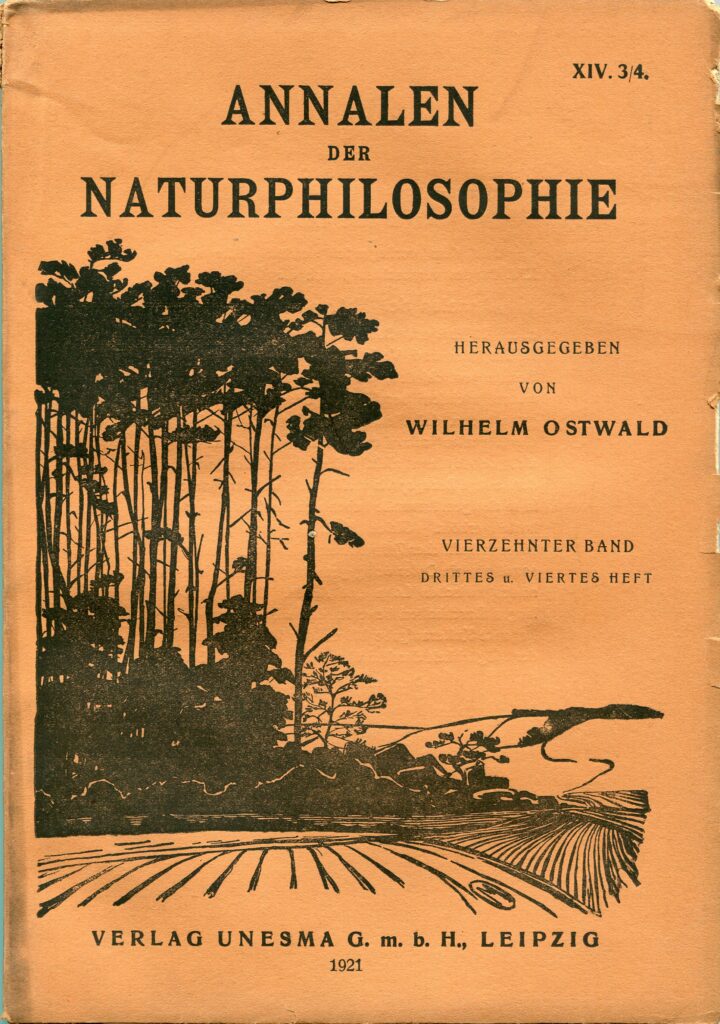
Very rare first appearance of Wittgenstein’s first work, which subsequently became the Tractatus Logico-Philosophicus (1922), one of only two books published in his lifetime. Wittgenstein’s early masterpiece, the Logisch-philosophische Abhandlung is ‘a comprehensive work of extreme originality’ and one of the most important philosophical works of the twentieth century. Wittgenstein had completed the work in August 1918, whilst serving as a volunteer in the Austrian army. He still had the manuscript with him when he was taken prisoner by the Italians in November. ‘From his prison camp near Monte Cassino he wrote to Russell, to whom the manuscript was subsequently delivered by diplomatic courier through the offices of a mutual friend, J. M. Keynes … Wittgenstein was anxious to have his book … published immediately’ (Encyclopedia of Philosophy VIII, 328).
‘By the summer of 1919 the three people Wittgenstein most hoped and expected to understand his work – Engleman, Russell and Frege – had each received a copy’ (Monk). Shortly after his release in August 1919, Wittgenstein offered the work to the publisher Braumüller, but Russell’s testimonial was not enough to secure publication on the terms Wittgenstein desired, and by the end of the year, with two further rejections, he was in despair. He met with Russell in The Hague in December to discuss the work, and the latter undertook to write an introduction to make it a less risky publishing proposition. However, when the introduction arrived in May 1920, Wittgenstein thought it contained much misunderstanding, and sent it to the publisher merely as a testimonial, not for publication. When his treatise was rejected again, ‘Wittgenstein wrote to Russell, in July 1920, that he would take no further steps to have it published and that Russell could do with it as he wished. The German text was published in 1921 in Wilhelm Ostwald’s Annalen der Naturphilosophie. The following year it was published in London with a parallel English translation, under the title Tractatus Logico-philosophicus’ (ibid).
